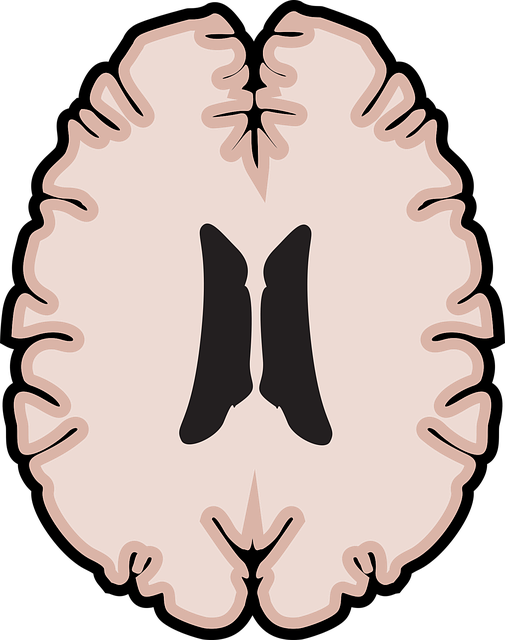When marketing mental wellness apps targeting Oppositional Defiance Disorder (ODD), prioritize understanding the unique needs of children and adolescents aged 6-18, especially males. Emphasize tailored therapy addressing emotional regulation, defiance, and relationship issues stemming from trauma or social skills deficiencies. Marketing strategies should promote holistic treatment, including stress reduction methods, social skills training, and trauma support. Highlight Therapy for Oppositional Defiance Disorder as a key service to empower users in managing emotions, improving relationships, and developing effective coping mechanisms for enhanced mental wellness.
In today’s digital age, online resources are pivotal in reaching individuals struggling with mental health conditions, such as Oppositional Defiance Disorder (ODD). This article explores a comprehensive marketing strategy for a mental wellness app tailored to ODD patients. We begin by understanding the target audience—identifying their demographics and unique challenges. Next, we craft a compelling value proposition, highlighting the app’s innovative features for managing ODD symptoms. Finally, we delve into a multi-channel marketing approach, utilizing digital tools and partnerships with mental health professionals to promote effective therapy alternatives.
- Understanding Your Target Audience: Oppositional Defiance Disorder (ODD)
- – Identify key demographics and psychographics of ODD sufferers
- – Highlight unique challenges and pain points faced by individuals with ODD
Understanding Your Target Audience: Oppositional Defiance Disorder (ODD)

Understanding your target audience is a crucial step in developing an effective marketing strategy for mental wellness apps, especially when addressing specific conditions like Oppositional Defiance Disorder (ODD). ODD is characterized by frequent and consistent defiant and hostile behavior towards authority figures, often leading to significant impairment in daily functioning. Marketing efforts should recognize that individuals with ODD may face unique challenges and have diverse needs. They might require tailored therapy for oppositional defiance disorder that considers their potential resistance to traditional treatment methods.
A targeted approach can be achieved by incorporating cultural sensitivity in mental healthcare practice, ensuring the app’s content and messaging resonate with different cultural backgrounds. Mental health education programs design plays a vital role here, helping to normalize conversations around ODD and promoting self-care practices as early interventions. By addressing these aspects, marketing strategies can effectively reach individuals struggling with ODD and offer them accessible, tailored support through mental wellness apps.
– Identify key demographics and psychographics of ODD sufferers

Understanding the target audience is a crucial step in developing an effective marketing strategy for mental wellness apps, especially when focusing on Oppositional Defiant Disorder (ODD). Key demographics include children and adolescents aged 6-18, with a higher prevalence among males. However, ODD can also manifest in adults, requiring tailored approaches. Psychographically, these individuals often struggle with emotional regulation, defiance against authority figures, and difficulty maintaining relationships. They may experience underlying trauma or social skills deficiencies that contribute to their behavior.
Marketing efforts should emphasize the holistic nature of treatment, addressing not only ODD symptoms but also providing support for co-occurring conditions like anxiety or depression. Highlighting services such as Therapy for Oppositional Defiance Disorder, Social Skills Training, and Trauma Support can resonate with this audience. Effective messaging could center around empowering individuals to manage their emotions, improve relationships, and develop coping mechanisms that enhance overall mental wellness while incorporating Stress Reduction Methods.
– Highlight unique challenges and pain points faced by individuals with ODD

Individuals with Oppositional Defiance Disorder (ODD) often face unique challenges in their mental wellness journey. This disorder, characterized by frequent and consistent defiant behaviour, can make it difficult for them to establish positive relationships and follow treatment plans. The struggle with authority figures, a common trait of ODD, can impede access to necessary therapy and create barriers to traditional mental health services.
Moreover, the emotional healing processes for those with ODD require tailored approaches. They may experience heightened anxiety and frustration due to their inability to regulate emotions effectively. Incorporating strategies for stress management and providing safe spaces for expression are vital components of a comprehensive treatment plan. Risk Management Planning for Mental Health Professionals plays a crucial role in ensuring these individuals receive the specialized care they need, fostering Anxiety Relief and promoting healthier emotional responses over time.
In developing a marketing strategy for mental wellness apps, understanding niche demographics like those affected by Oppositional Defiance Disorder (ODD) is crucial. By identifying and addressing the specific challenges faced by individuals with ODD, such as impulsive behavior and anger management issues, app marketers can create targeted solutions that offer effective therapy for ODD. Incorporating user-centric design and personalized experiences can significantly enhance engagement, making mental wellness apps accessible and appealing to this unique audience.














